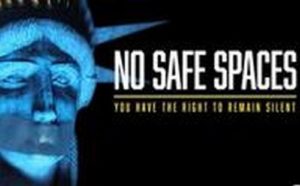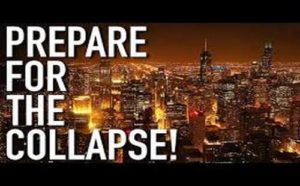Greed is a strong and selfish desire to have more of something, most often money or power. There are many warnings in the Bible about giving in to greed and longing for riches. Jesus warned, “Watch out! Be on your guard against all kinds of greed; a man’s life does not consist in the abundance of his possessions” (Luke 12:15). “Do not store up for yourselves treasures on earth, where moth and rust destroy and where thieves break in and steal… You cannot serve both God and money” (Matthew 6:19, 24b). Did Jesus pursue the acquisition of money? No. On the contrary, He became poor for our sake (2 Corinthians 8:9) and had “no place to lay his head” (Matthew 8:20). Neither did Jesus pursue power. Rather, He instructed, “Whoever wants to become great among you must be your servant, and whoever wants to be first must be slave of all. For even the Son of Man did not come to be served, but to serve, and to give his life as a ransom for many” (Mark 10:43–45).
- At the heart of the dispute is the purge of 1.88 billion records. Bank of America, in a court filing, insists the records were copied, returned to the bank and still exist in its system.
- Miami attorney Bruce Jacobs, a former prosecutor, says the bank got rid of loan records that he claims may have contained evidence of fraud.
- Bank of America said he has it all wrong.
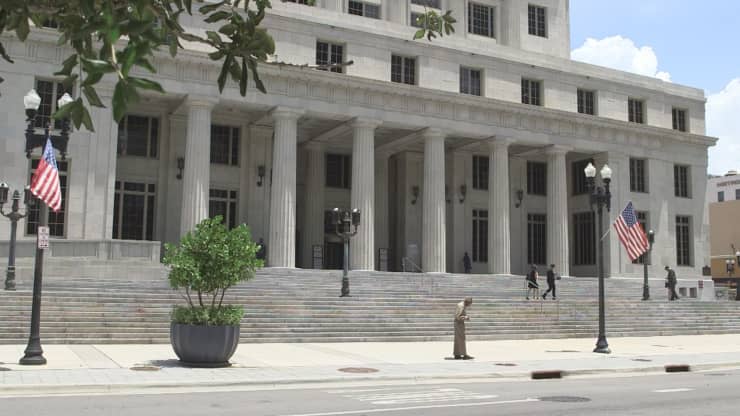
Courthouse in Miami where the case is taking place….
MIAMI – The nation’s second-largest bank is squaring off in a contentious court battle against a Miami real estate attorney who is accusing it of purging 1.88 billion records to conceal alleged fraud.
Bank of America, in a court filing, insists the records were copied, returned to the bank and still exist in its system.
But Bruce Jacobs, a former Miami-Dade County prosecutor, says the bank got rid of loan records he was seeking that he says may be evidence of fraud because the original records may have been altered by the bank.
“Bank of America thinks they’re untouchable,” Jacobs told CNBC. “They think they have so many zeroes in their bank accounts that they’re above the law.”
The bank, while declining repeated requests for comment, called Jacobs’ allegations in a court filing last month “simply a collection of grievances against the banking and mortgage industries generally.”
It said Jacobs’ “baseless charges of fraud, conspiracy, perjury and other allegedly illegal or improper acts” by Bank of America have never been proven. Jacobs “nevertheless continues, without a trace of shame or irony, to recycle these reckless and rejected accusations ad nauseum.”
Mortgage loan servicing and foreclosure abuses were at the heart of the landmark $25 billion agreement in 2012 between the nation’s five largest mortgage servicing companies, including Bank of America, and the Justice Department and 49 state attorneys general to compensate homeowners who were hit by the housing crisis.
The settlement focused on what the Justice Department called “mortgage loan servicing and foreclosure abuses” as a result of the housing bubble. Many of those abuses involved what is known as robosignings. The loans are supposed to be endorsed with correct signatures when they are processed, and not at a later date, which the Department of Justice says happened in thousands of cases.
The Miami case began in 2013 as a foreclosure lawsuit in Miami-Dade Circuit Court against a couple who own a condo in Bal Harbour, Florida. After a financial setback, the couple sought a loan modification from Bank of America, which serviced the loan, held by Bank of New York Mellon. Bank of New York Mellon sued for foreclosure. Originally, Bank of America was not a party to the lawsuit.
The foreclosure case was settled last year, and the couple, who had to file for bankruptcy, remained in their home.
However, Jacobs, who represents them, filed a countersuit against Bank of New York Mellon in which he made serious allegations against the two banks.
What Jacobs said he discovered over several years — according to court documents filed in his numerous foreclosure cases in South Florida and reiterated in an interview — are allegations that Bank of America deliberately acted improperly.
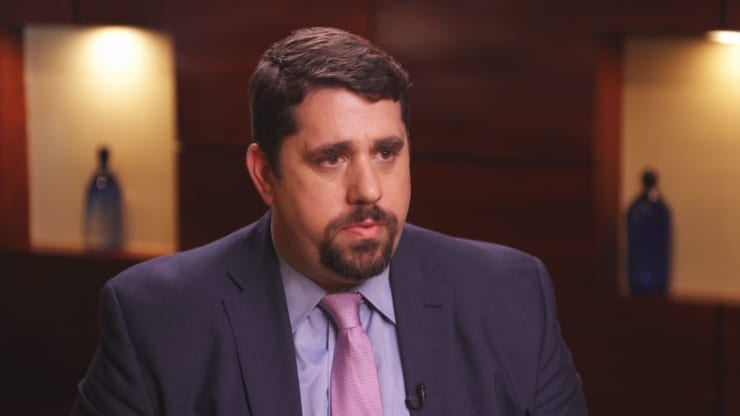
Attorney Bruce Jacobs….
According to a timeline Jacobs spelled out in court records, he said he learned in 2015 that a company called SourceCorp did work for Bank of America. The company’s name appeared on loan records he had obtained through the discovery process in a separate Miami-Dade County foreclosure case. Jacobs said he found that odd because he had never heard of the company.
Court filings show that Jacobs filed a notice to take a deposition on Nov. 2, 2015, asking for more information about the loan in the case.
The following month, he filed a “notice of intent to serve (a) subpoena for deposition” on SourceCorp. That notice asks for “any relationships, agreements, work orders, instructions” related to the loan and Bank of New York Mellon and Bank of America.
In January 2016, a court-ordered subpoena was issued and served on SourceCorp.
Then in February 2016, SourceCorp turned over a copy of a contract with Bank of America.
Jacobs said he was stunned to learn through discovery in another case more than a year later that Bank of America had ordered SourceCorp to purge its records.
“And what I found out later is that as I’m going though that whole process, Bank of America has ordered SourceCorp to do a military-grade purge of all of their records, everything: 1.88 billion objects of data, metadata, encryption keys,” he said.
Jacobs points to two emails he received from SourceCorp as part of the discovery process that he says alerted him to the purge.
The first email, dated Feb. 16, 2016, described what SourceCorp called “a final summary of the Fastrieve Purge Project.” The document shows the purge took about three months to complete.
Jacobs said he obtained a second SourceCorp email from June 16, 2017. It said Bank of America “had us execute an extensive project to purge all of its data, which we were obligated to do.”
The email was from Dimple Sehgal, corporate counsel for SourceHOV, which is SourceCorp’s current name. Sehgal did not respond to multiple requests for comment via email and voicemail.
Jacobs has now subpoenaed SourceCorp to appear for a deposition in connection with the records purge.
A “statement of work” between Bank of America and SourceCorp describes how the bank’s loan documents would be imaged and ultimately purged from SourceCorp’s system, according to a document turned over in discovery.
“Image storage and final disposition will be in accordance with Bank of America protocol currently in place,” the document states. “All images will remain in FASTRIEVE until such time they are archived in Bank of America iPortal repository. In no case will the images be purged or deleted without Bank of America approval.”
The red flag, according to Jacobs’ court filings, is when Bank of America actually ordered SourceCorp to start purging the 1.88 billion records: Nov. 13, 2015, which was 11 days after Jacobs filed the notice to take a deposition about the loan in the case. He said the purge continued even after the court-ordered subpoena was served on SourceCorp.
In addition, Jacobs said a Bank of America flow chart he obtained as part of the discovery process shows the note endorsement process.
“The flow chart shows that Bank of America corrected the lack of endorsements on original notes in open, active foreclosures by using unauthorized workers to surrogate sign endorsements on original notes with rubber stamps,” Jacobs wrote in a court filing. “Later, Bank of America continued the surrogate signing process for loans about to be referred to foreclosure.”
In another court filing, he wrote that Bank of America “stonewalled discovery with scorched earth tactics to hide evidence of its ‘delinquent note enforcement process’” involving SourceCorp.
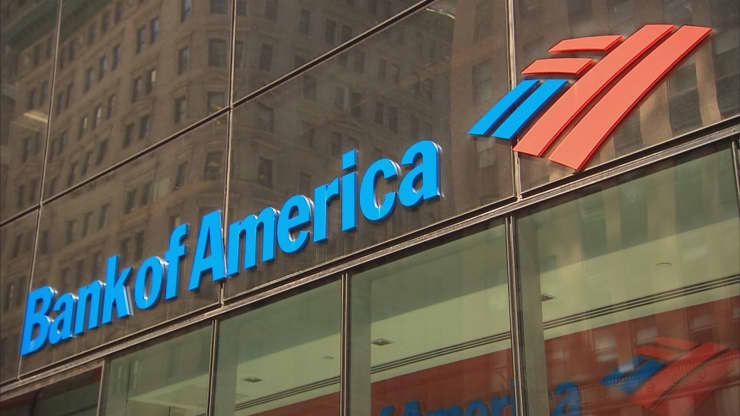
Bank of America calls Jacobs’ allegations “baseless”.CNBC
Bank of America said Jacobs has it all wrong.
A June 26, 2017, court-filed sworn statement from Thomas Wrenn, a Bank of America senior vice president, said the bank has used SourceHOV and its predecessor company, SourceCorp, “to scan, index and provide electronic document retrieval sources.”
“In February 2016, SourceHOV completed a routine purge of data in accordance with the terms of the agreement under which the Bank had engaged SourceHOV for its electronic documents service,” the statement said. “All of the images … that SourceHOV purged in February 2016 had been migrated and copied into the Bank’s own repository, known as P8, prior to the purge by SourceHOV and are currently in the Bank’s possession.”
CNBC requested a more detailed explanation from Bank of America of both the timing of the purge and Jacobs’ allegations. A bank spokesperson cited the Wrenn statement and said it would later issue its own statement because Jacobs’ claims were outlandish.
But the following week, a second spokesperson said the bank would not respond to Jacobs’ allegations.
Instead, the bank did send several emails with links to court cases in which Jacobs was admonished for overreaching in requests for records.
Bank of America, which serviced the loan in the Miami foreclosure case, has now been added as a cross defendant in the case, according to an order from Miami-Dade Circuit Judge Bronwyn Miller. The judge has set a hearing date for Monday on motions by Jacobs for sanctions and by Bank of America to dismiss Jacobs’ claims.
Jacobs is trying to prove his allegations of criminal contempt of court for the purge that he said took place after he had asked a court for bank records in the separate Miami-Dade County foreclosure case. He also claims violations of RICO — the Racketeering Influence Corrupt Organization Act — by Bank of America and Bank of New York Mellon.
“Many of the acts alleged by borrowers are simply not crimes,” Bank of America’s court filing said. “Borrowers once again allege that the trustee and (Bank of America) have used improper evidence to prove standing in foreclosure cases, including surrogate-stamped endorsements and mortgage assignments that are allegedly defective.
“However, nowhere do borrowers allege that the endorsement assignment, or any of the loan documents pertaining to their loan are defective or improper — nor can they, given their acknowledgement in the loan modification agreement that the loan documents are all authentic, valid and binding.”
The bank also said in court filings that it would not turn over any loan records sought by Jacobs, calling his requests “irrelevant, immaterial and will not lead to the discovery of admissible evidence.”
It added that Jacobs’ request for any instructions to SourceCorp to purge records was “overboard and burdensome.” It cited a Florida case that found “discovery rules were ‘not intended to afford a litigant an avenue to pry into his adversary’s business to go on a fishing expedition’” related to the business.
The bank’s court filings do not address specifics about the records purge.
Jennifer Hendricks Sullivan, global head of external communications for Bank of New York Mellon, said the bank declined to comment due to the pending litigation. In a court filing this month, Bank of New York Mellon said the allegations by Jacobs should be dismissed because they were not raised in the Miami couple’s bankruptcy proceedings, and should not be litigated now. Source
Bankers and gangsters are mainstream in today’s financial institutions, these large to midsize banks and there under links the “bankers” are the corrupt wheeler-dealers, they manipulated markets, sliced and diced mortgages (fraudulent foreclosures) and played loose with other people’s money, they are gangsters.. Their history proves the bad fruit that has harmed the American people….
StevieRay Hansen
Editor, Bankster Crime
MY MISSION IS NOT TO CONVINCE YOU, ONLY TO INFORM…
![]()
